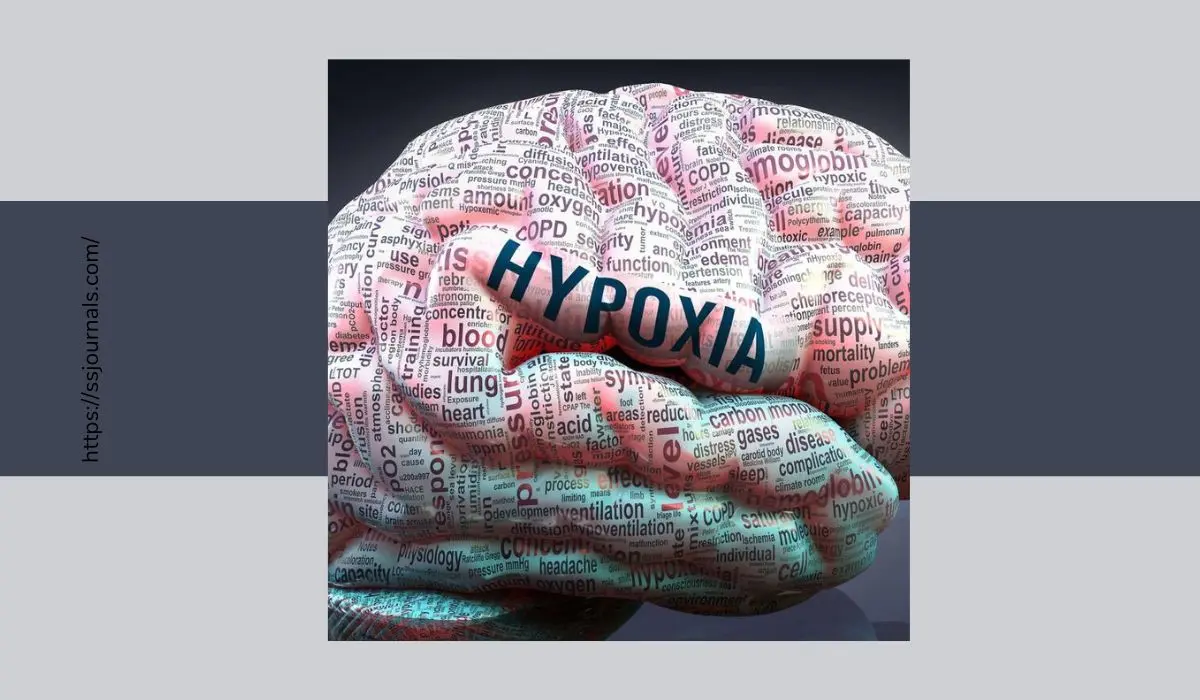Brain hypoxia occurs when there is insufficient oxygen supply to the brain, resulting in potential brain cell damage and disruption of vital functioning. Understanding the causes, signs, and methods of diagnosis of brain hypoxia leads to faster treatment and improved outcomes.
Brain Hypoxia: Causes, Symptoms, And Diagnosis
Brain hypoxia refers to oxygen deprivation in the brain tissues. The brain relies on a constant supply of oxygen for normal functioning, delivered by the bloodstream. Interruption results in brain cells being starved of oxygen.

This causes cell damage, impairment of brain activity, and ultimately cell death if prolonged. Causes range from heart stoppage depriving the brain of oxygenated blood flow, to respiratory arrest where oxygen can’t reach the lungs to be transported through the blood.
Carbon monoxide competes with oxygen binding on blood hemoglobin. Other causes stem from restricted or depleted oxygen in the air itself.
Rapid diagnosis and prompt treatment are crucial to restore oxygen flow and prevent permanent brain injury.
Evaluation involves tests to assess mental function, imaging, and laboratory work. Therapy aims to deliver oxygen, treat underlying causes, and provide neuroprotective measures.
What Causes Brain Hypoxia?
Common causes of brain hypoxia include:
➜ Stroke – Blocked blood supply stops oxygen from reaching brain regions
➜ Cardiac arrest – The heart stops pumping blood to the brain
➜ Respiratory disorders – Conditions like COPD prevent oxygen absorption
➜ Carbon monoxide poisoning – CO binds to hemoglobin, preventing oxygen transport
➜ High altitudes – Low oxygen content at high elevations
➜ Near drowning – Respiratory impairment from submersion limits oxygen
➜ Choking or strangulation – Blocks airways preventing air/oxygen from reaching lungs
➜ Anemia – Low red blood cells reduce oxygen-carrying capacity
➜ Sleep apnea – Repeated drops in oxygen saturation during sleep
➜ Sepsis – Widespread infection reduces oxygen delivery
Recognizing Symptoms Of Brain Hypoxia
Brain hypoxia signs may include:
◾️ Headache – Especially sudden, severe headache as an early warning sign
◾️ Lightheadedness, dizziness, vertigo
◾️ Mental confusion, personality changes, irritability
◾️ Memory and cognitive deficits – Inability to think clearly or pay attention
◾️ Hallucinations and delirium in more severe cases
◾️ Seizures – Caused by abnormal nerve cell firing during oxygen lack
◾️ Loss of consciousness – Progressing from lethargy to eventual coma
◾️ Ataxia and loss of movement coordination
◾️ Numbness, tingling, weakness on one side of the body or face
◾️ Vision changes – Blurred vision or even blindness
How Brain Hypoxia Is Diagnosed?
To definitively diagnose brain hypoxia, doctors utilize:
➜ Medical history – Determine events around symptom onset, and look for causes
➜ Physical exam – Check vital signs, cardiopulmonary status, neurological deficits
➜ Brain imaging – CT scan or MRI to identify regions affected by oxygen lack
➜ PET scan – Evaluates brain’s oxygen metabolism patterns
➜ EEG – Records electrical activity, seizures, and brain wave abnormalities
➜ Cognitive testing – Assesses functions like memory, attention, language
➜ Blood tests – Evaluate oxygen and CO2 levels, anemia, electrolyte imbalances
➜ Lumbar puncture – Cerebrospinal fluid analysis for markers of oxygen deprivation
Treatments For Brain Hypoxia
◾️ Restore oxygen supply – Respirator, high-flow oxygen, cardiopulmonary resuscitation
◾️ Treat underlying condition – Reverse stroke, remove airway obstruction, resolve sepsis
◾️ Elevate the head of the bed to 30 degrees – Improves oxygenated blood flow
◾️ Reduce intracranial pressure – With medications, drainage, or surgery if elevated
◾️ Neuroprotective measures – Cooling therapy and drugs that reduce brain cell death
Medications to control seizures and brain swelling
◾️ Cognitive rehabilitation – Restores function in deficient areas through therapy
◾️ Physical, speech, and occupational therapy – To redevelop capabilities and strength
The prognosis depends on multiple factors including hypoxia severity and duration. With treatment, recovery is possible in many cases but residual disability may remain.
Conclusion
A continuous supply of oxygen is critical for normal brain functioning. When compromised by various causes, hypoxia jeopardizes neurons and rapidly brings severe impairments.
Fast action to diagnose based on symptoms and promptly restore oxygen flow can make a difference in preserving brain health. Increased awareness and monitoring of risk factors help prevent episodes of hazardous oxygen deprivation in the brain.
FAQs
Brain cells begin dying within minutes of oxygen loss. After 3-6 minutes, permanent damage is likely. But cooling therapy can extend survival slightly.
It depends on the duration and degree. Mild, brief hypoxia may cause temporary symptoms. But just a few minutes of severe oxygen lack causes lasting deficits.
Stroke and heart attacks that impede blood flow are the most frequent causes. Respiratory arrest, carbon monoxide poisoning, and choking can also quickly deprive the brain of oxygen.
Sudden severe headaches, dizziness, confusion, weakness or numbness on one side, personality changes, and vision issues are some initial symptoms of brain hypoxia to recognize.
PET scans evaluate oxygen metabolism in brain tissues. Blood tests measure oxygen saturation. MRI and EEG also detect signals of hypoxia. Lumbar punctures can confirm it.

